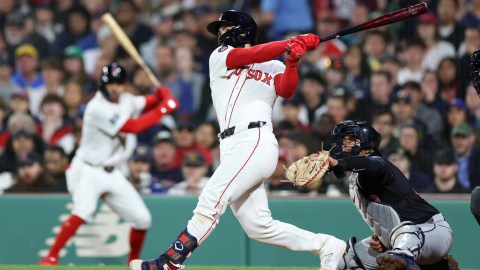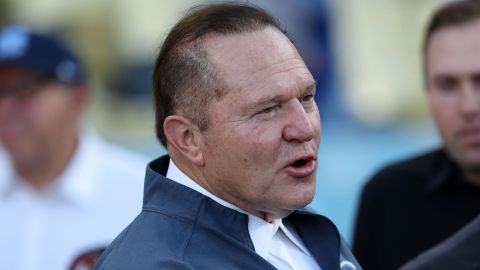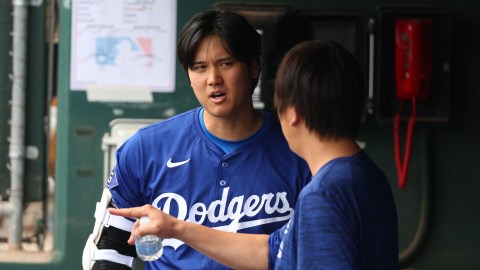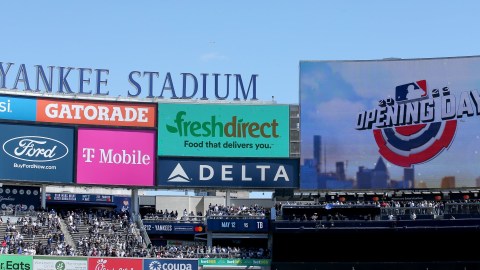 If you believed in the MVP candidacy of Mike Trout over Miguel Cabrera, then the days since the announcement have likely been frustrating ones.
If you believed in the MVP candidacy of Mike Trout over Miguel Cabrera, then the days since the announcement have likely been frustrating ones.
Obviously there was the vote itself, in which 22 of 28 members of the Baseball Writers’ Association of America said that Cabrera was the more “valuable” player in 2012 — the other six did indeed vote for Trout. But beyond the outcome, it’s been the response of those that were always vehemently pro-Cabrera that has been so frustrating.
Mostly, it’s the fact that the anti-metrics crowd has continued to repeat the same old anti-sabermetric platitudes that’s been most annoying. It’s not that the pro-Cabrera crowd disagrees with the SABR people, it’s that they still just don’t get it, and are basically refusing to accept the undeniable truth of some basic principles.
However, it’s also frustrating that the BBWAA obviously hasn’t caught up to the how the sport of baseball actually thinks and operates. GMs, at this point, simply look beyond the basic total stats to figure how valuable a player is, not just sheer totals like home runs and RBIs. The decisions of the top level of baseball are premised far more on metrics and projections, nowadays, than the old-guard stats.
So, this seemed as good a time as any to run through some of the oft-repeated anti-Trout and anti-sabermetrics arguments, and reply to them — for one final time regarding this MVP debate — in kind.
1. Miguel Cabrera deserves the MVP because the Tigers made the playoffs and the Angels didn’t.
There are two things basically wrong with this premise. The first is obvious: the Angels actually won more games than the Tigers did, but the AL West is just a tougher division. In short, the Angels were the better team over the course of a 162-game season, and beyond that actually played better competition by virtue of the fact two playoff teams played in the AL West, whereas the Tigers were the sole representative of the AL Central. Why is the anti-SABR crowd kidding themselves into thinking Detroit was a better team than Los Angeles in 2012?
However, that point should be irrelevant, anyway. Baseball is a team game, played by 25 players on the active roster and countless more who will play some sort of role throughout the season as injuries and other roster moves come into play. The fact that one player should be held accountable for his teammates’ play in regards to an individual reward is just prehistoric thinking at this point.
2. Miguel Cabrera drove in 139 runs compared to Trout’s 83. Therefore, he was responsible for more scoring.
Once again, there are at least two things wrong with this line of thinking. The first is that somehow RBIs are a bigger piece of the puzzle in terms of how runs are scored than getting on base or scoring runs. They’re not.
Scoring a run is a function of any number of factors, not just who drives the runner in. And, the plain fact of the matter is that Trout, not even factoring defense into the equation, was responsible for more scoring than Cabrera was due to his on-base skills and baserunning. In fact, the optimal lineup — according to research — should feature a team’s best hitter in the No. 1 or No. 2 slots, just for that reason: the guy who scored the run plays a bigger role in that score than the guy who drives him in.
The second point here is simpler: if Trout batted third or fourth he would have had more RBIs. RBIs are largely a construct of context and how good the hitters in front of you are, not always how good a hitter one is.
3. Cabrera deserves credit for selflessly moving to third base.
To this the response can only be: why? No doubt Cabrera’s move was selfless and for the good of the team, but that’s a factor that has nothing to do with performance. The plain truth is that Cabrera is a far-below-average defender at whichever corner infield position he plays, and is hurting his team every time he steps out onto the field with a glove on his hand.
Trout, meanwhile, is one of the best defenders in baseball at one of its most premium defensive positions. We can debate to what degree defense should come into play in the MVP or how defense is valued, but let’s not give credit to Cabrera for inadequately playing his position.
4. The Triple Crown carries a special significance in terms of award voting.
This is really at the crux of the new school versus old school debate — and what’s likewise so frustrating for those who are trying to impart the wisdom of mathematical analytics. No doubt, the Triple Crown is an impressive achievement which, on some level, does prove Cabrera was a very valuable hitter.
However, the problem continues to be that, taken alone, they are numbers without context. What we’ve found out in the modern era is that, in terms of scoring runs, batting average is not as important as on base percentage, and RBIs (as stated before) are a construct of factors that are beyond control of the hitter.
That all being said, in most seasons, a Triple Crown winner would probably pass MVP muster by the SABR crowd. However, when compared to what Trout accomplished this season, it just isn’t as impressive.
In short, Trout generated more offense, and he was the better baserunner and fielder. Trout should have won the MVP award, and the BBWAA voters got it wrong.
Photo via Flickr/Keith Allison



